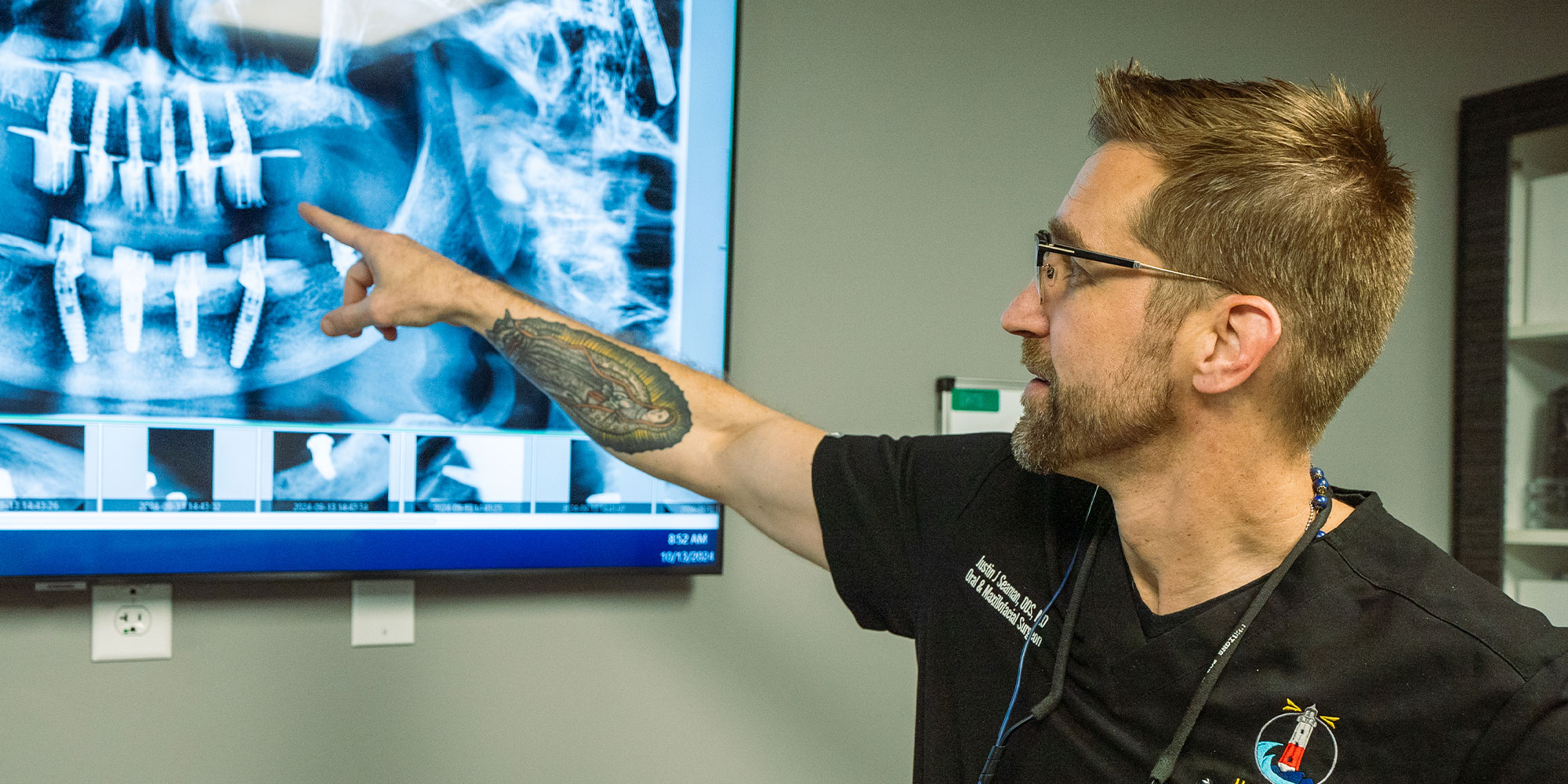
Severe pain from infected or damaged teeth can significantly impact daily life. While preserving natural teeth is ideal if a tooth is beyond repair, our team recommends extraction to safeguard overall health. Leaving a diseased tooth untreated can jeopardize surrounding teeth, bone, and gums, leading to enduring discomfort.
With specialized training, our team excels in complex extractions, welcoming challenging cases and patients with pre-existing conditions. Our advanced technology ensures a comfortable surgical experience, offering immediate replacement of extracted teeth with natural-looking dental implants. This comprehensive approach alleviates pain and restores confidence with a functional and durable smile.
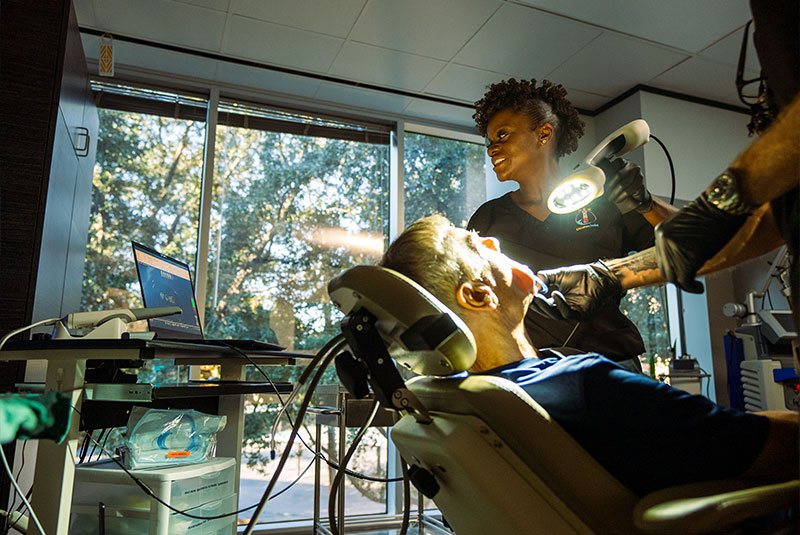
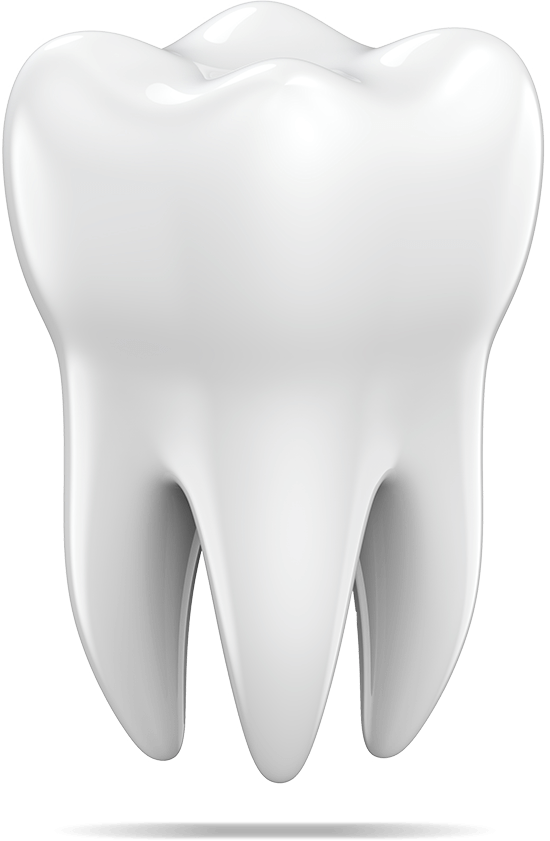
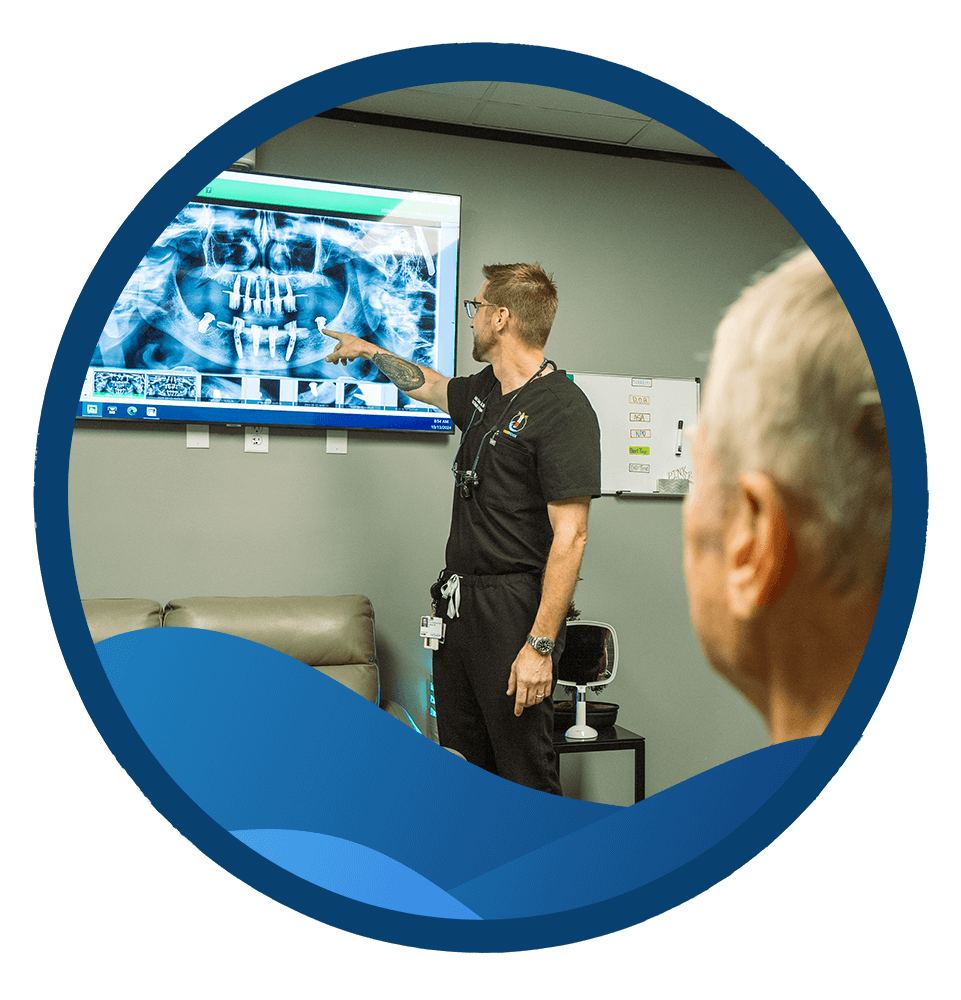
Tooth extractions are performed weekly, if not daily, at Lighthouse Oral & Maxillofacial Surgery. As a result, we’ve refined our process, keeping your comfort our top priority. We will begin with a consultation to discuss your dental concerns and perform a complete examination to determine your eligibility for extraction. If your tooth is deemed unsalvageable, we will schedule you for a tooth extraction.
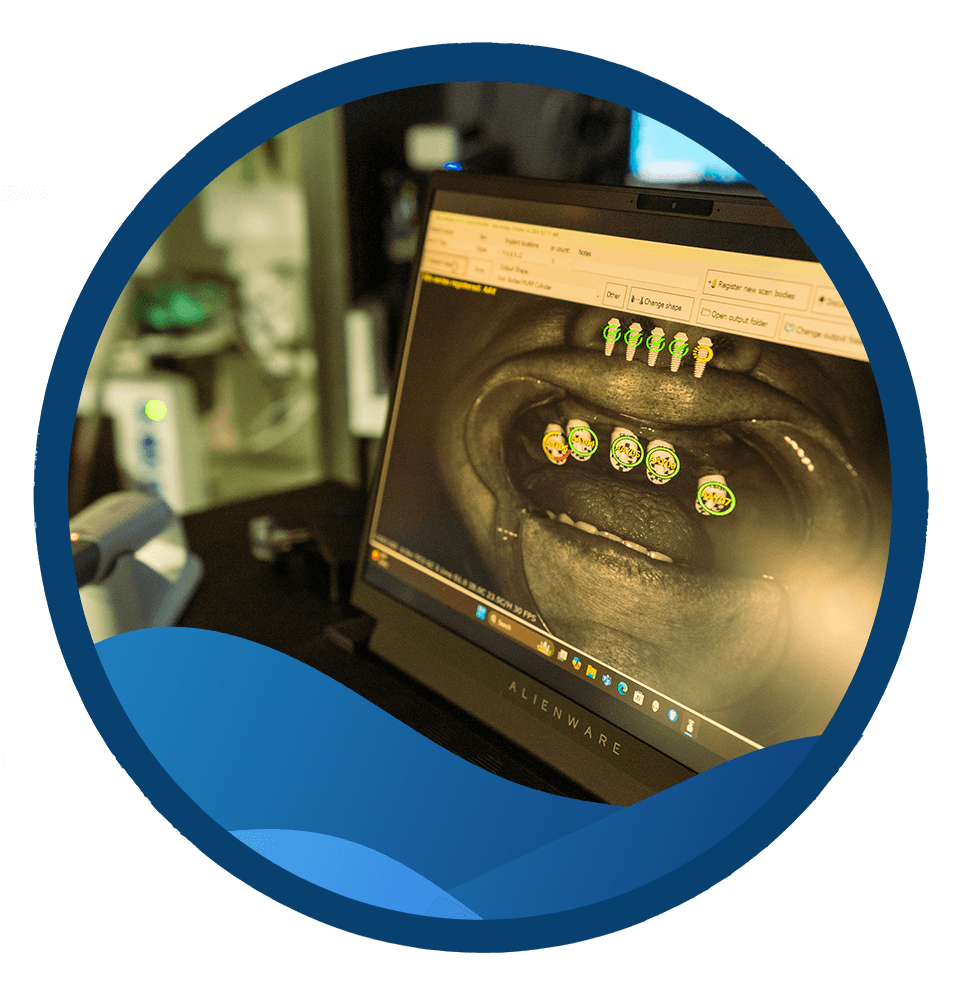
When you arrive, we’ll show you to your private surgical suite before administering your chosen sedation previously discussed in your consultation. You’ll quickly feel relaxed and will have virtually no pain during your procedure. Depending on the level of sedation you receive, the most you’ll feel is minor pressure as we remove your tooth. If you have an impacted tooth, more extensive work may be required to gain access to your tooth and detach its roots. However, each process step will be explained in detail before treatment begins.
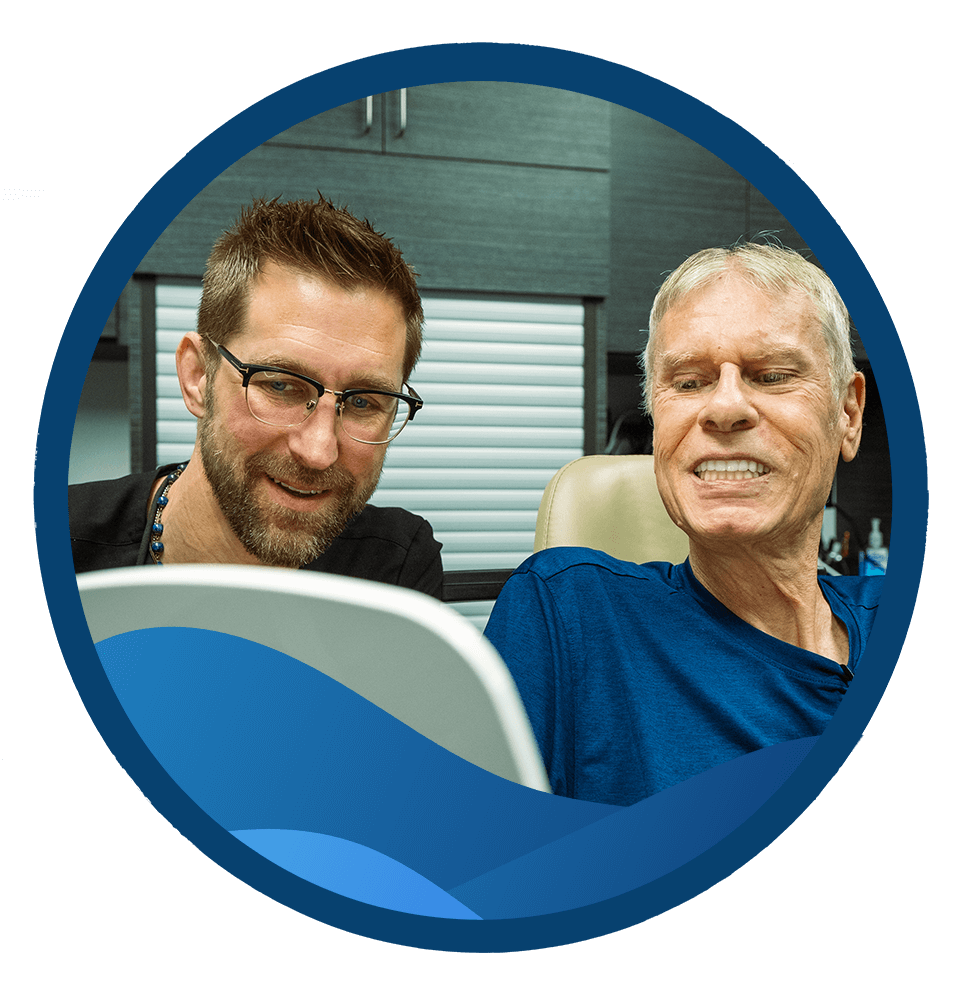
Recovery periods typically last a few days, during which we may prescribe medication to minimize discomfort. We’ll review post-extraction directions in-depth to avoid complications like dry sockets and ensure a swift and easy recovery!
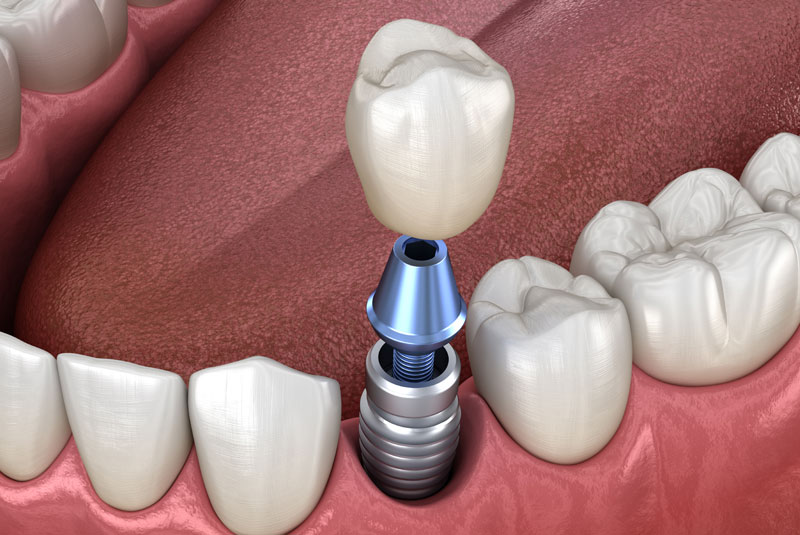
Your tooth extraction shouldn’t be the last stage of your treatment. We often recommend replacing extracted teeth with dental implants, excluding wisdom teeth. Dental implants are the only permanent solution that closely mimics natural teeth. They comprise a post (root replacement) surgically placed into the jawbone to stimulate bone growth. Once integrated, a custom crown is affixed via an abutment, offering aesthetic and functional benefits identical to natural teeth.
Our team is trained extensively in dental implants and frequently performs implant placements during the same visit as extractions, ensuring seamless restoration and preserving your smile’s integrity. Receiving this care from a specialist team with expert training in dental implants, you will likely be able to have a dental implant placed during the same visit as your tooth extraction. It’ll be as if you’d never had a tooth extracted in the first place!
